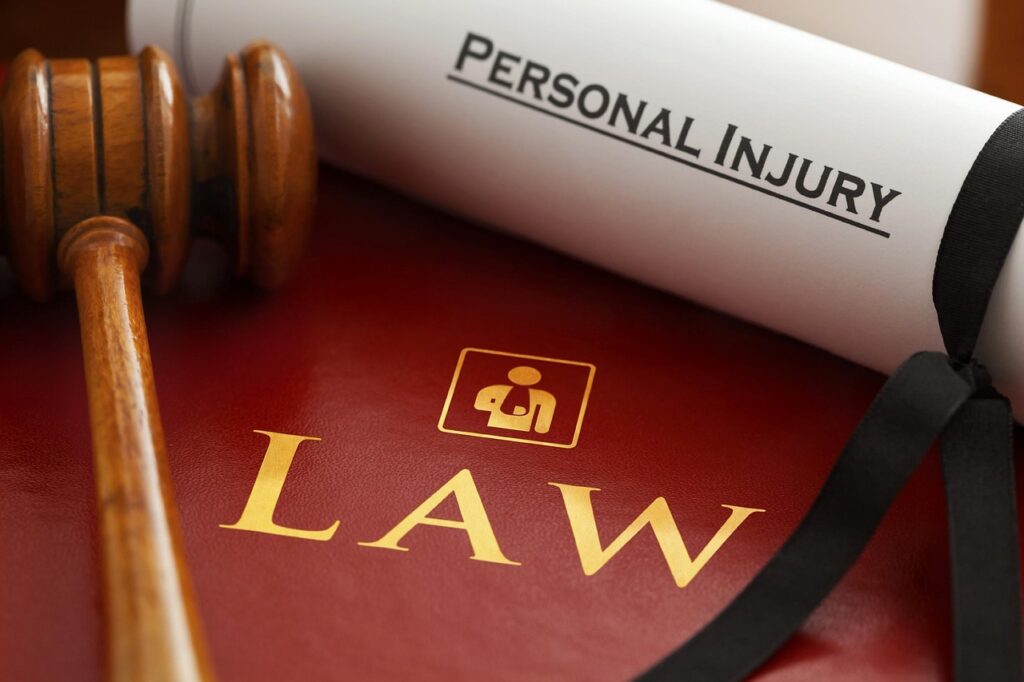Table of Contents
- What is Personal Injury Law?
- Common Types of Personal Injury Cases
- How to Determine Liability
- Insurance in Personal Injury
- Steps to Take After an Injury
- Understanding Compensation and Damages
- Hiring the Right Lawyer for Your Case
- Frequently Asked Questions About Personal Injury
What is Personal Injury Law?
Personal injury law is a legal domain intended to safeguard individuals who have suffered physical or psychological damage due to another’s carelessness or unlawful conduct. Unlike criminal law, which focuses on punishing the wrongdoer, personal injury law aims at compensating the victim. Personal injury law firms such as Killian, Davis, Richter, & Fredenburg, PC possess the expertise to guide individuals through these intricate processes, ensuring victims receive just reparation for their losses. This area of law can cover incidents ranging from minor to life-altering, emphasizing the importance of having solid legal representation to navigate the complex interactions of legislation and judicial decisions effectively.
Common Types of Personal Injury Cases
Personal injury encompasses many cases, each category presenting its distinct challenges and requiring specialized knowledge. For instance, automobile accident claims frequently involve an analysis of traffic laws and regulations, while slip and fall cases often emphasize premises liability statutes. In medical malpractice scenarios, which are notoriously intricate, plaintiffs must demonstrate not only the injury but that it arose from a deviation from an established standard of medical care. Understanding these distinctions is crucial, as each type of case involves different legal principles and defensive strategies; ensuring that an attorney is familiar with specific personal injury types is vital for a successful outcome.
How to Determine Liability
Establishing responsibility in personal injury situations is a cornerstone that heavily influences the entire legal process, depending on the demonstration of negligence. To establish liability, it must be shown that the defending party owed the plaintiff a responsibility of care that was violated, causing injury. Such criteria can vary extensively across different scenarios, requiring a firm grasp of the legal structure for negligence for accurate application. These laws’ intricacies often require a meticulous examination of details and evidence, including witness testimonies, expert opinions, and sometimes complex accident reconstruction analyses to pin liability effectively.
The Role of Insurance in Personal Injury
Insurance coverage is critical in personal injury lawsuits, acting as victims’ primary means of financial restitution. Policies typically cover medical bills, property damage, and related costs, though navigating insurance claims can be challenging. Insurers often aim to minimize payouts, employing various tactics to settle claims cheaply. Thus, understanding the nuances of policy contracts and the claims process is indispensable for claimants seeking fair compensation. An advocate well-versed in these processes can efficiently discuss terms with insurance providers to guarantee that victims obtain what they are rightfully entitled to, balancing the scales in favor of those affected by negligence.
Steps to Take After an Injury
In the aftermath of an injury, the steps taken are crucial in safeguarding one’s legal interests. Immediate medical attention should be a top priority for health concerns and generating a medical record that can serve as evidence. Documenting the scene through photographs and witness accounts and securing relevant documentation can also significantly bolster a claim. Seeking legal counsel shortly after ensures that claimants take appropriate actions, avoid common pitfalls, and adhere to statutory deadlines. Quick, deliberate actions can lay a strong foundation for a successful personal injury claim, providing the clarity to focus on recovery rather than legal complexities.
Understanding Compensation and Damages
The concept of compensation in personal injury law is multi-faceted, covering economic and non-economic damages. Economic damages include tangible losses such as medical expenses, rehabilitation costs, and lost wages. In contrast, non-economic damages address less tangible impacts like pain, suffering, and emotional distress. Understanding these concepts is crucial for victims to pursue a comprehensive claim that fully reflects their losses. By consulting resources on comprehensive compensation structures, individuals better understand their rights and potential entitlements, laying the groundwork for negotiations that reflect the true extent of their hardships.
Hiring the Right Lawyer for Your Case
Choosing the right legal advisor can significantly influence the results of a personal injury lawsuit. A lawyer focused on personal injury law can provide crucial perspectives and tactics customized to the specific circumstances of a claim. Look for legal experts with a robust knowledge of personal injury regulations and a demonstrated history of effective case outcomes. Their negotiation skills, familiarity with the judicial system, and ability to articulate effectively can make or break a legal argument, underscoring the importance of selecting a lawyer who fits the case’s unique needs for a favorable conclusion.
Frequently Asked Questions About Personal Injury
Addressing frequently asked questions provides much-needed clarity by tackling common concerns like the duration of personal injury proceedings, associated costs, and courtroom expectations. For instance, many wonder how long their case might take to resolve; the timeline can vary based on case complexity, settlement negotiations, or court schedules. Some people are concerned about initial legal expenses; certain firms operate on a contingency basis, which means that legal fees are payable only if the case is successful. Providing straightforward answers to such questions ensures that individuals are well-informed, empowering them to approach their case confidently and minimize unnecessary stress during a potentially trying time.


